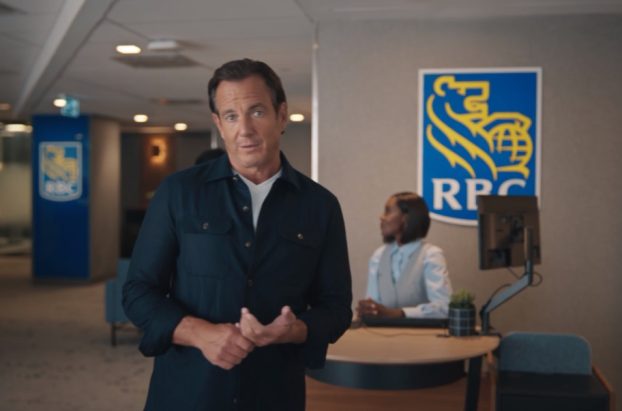Ad veteran and longtime strategy columnist Barry Base passed away Feb. 27 from a brain tumour. Born in Halifax in 1941, Base worked for a number of agencies – starting with Goodis Goldberg Soren – before founding Kaleidoscope, which underwent various transformations over the years, from Base Hamilton Edwards to Barry Base & Partners. His work ranged from a Uniroyal campaign featuring the voice of Orson Welles and the caveman from Johnny Hart’s B.C. strip to Eaton’s ‘Uncrates the Sun’ and efforts for Seiko, Swissair and many others. He was a gifted copywriter who shared his talents with strategy over 13 years in a column full of passion and annoyance and titles like ’20 Reasons Why Ads Suck.’
‘Barry had a good anger,’ says fellow ad icon Gary Prouk of Sebastian Consultancy, ‘and he seemed to stay true to what he wanted to do, which was to not be part of a large company.’
‘Barry wrote beautifully,’ says Jeffrey Shearer, publisher of On the Bay magazine. ‘He did work for me at the Toronto Star from 1997 to 2001. I wanted a concept for the trade media, and Barry came up with the ‘Friendly Giant.’ It was brilliant because it reminded everybody that the Star was a giant, and you couldn’t ignore a giant, but you’d like to do business with a friendly one.’
‘Barry had a pioneering spirit,’ adds former GGS colleague Doug Linton. ‘And whether it was in an ad or a strategy column, his writing was never less than excellent. His rants were especially compelling. I am proud to have been his friend.’
Barry Base leaves behind four children – Christian, Jonathan, Michelle and Madeline – and a legacy of nurturing the next generation via his example and his commentary in these pages.
One of the very best
By Mark Smyka
So much has changed since a wide-eyed Barry Base took to the blank page and began his inspired advertising journey, beginning, as I recall, at Goodis Goldberg Soren, the creative petri dish of its day.
But while the marketplace may have altered, I would guess that if Barry could start in the business all over again today, he would nonetheless be its master.
Barry was an original, like the words that flowed so gracefully and, more often than not, provocatively through his columns, and that sold his clients’ products with such cleverness, sophistication and ease.
The year was probably 1990. I had come to know and admire Barry from the previous decade of news stories I had written about him. We had just launched strategy and I found myself turning to Barry for the first time not as a journalist seeking an interview or commentary, but as a colleague, hoping he could help me in my search to find the right voice for the magazine.
Barry had the three qualities I wanted. He could write (a skill that was in alarmingly short supply). He had something to say. And finally, and for me most importantly, he cared.
Barry cared a lot. It showed in the elegant prose he so lovingly crafted, in the scorn he heaped on second-rate work and every now and then in the rebel that lurked inside and that contributed so much to making him what he was. He had a genuine talent that was neither reliant upon technique nor subservient to the trendy.
Barry would have flourished in any era. The evidence is there, in my favorite Bill Bernbach quote which, not surprisingly, Barry used in a column one time:
‘It took millions of years for man’s instincts to develop, it will take millions more for them to even vary. It is fashionable to talk about changing man. A communicator must be concerned with unchanging man, with his obsessing drive to service, to be admired, to succeed, to love, to take care of his own.’
Barry Base made this belief a practice, and that’s why he was one of the very best.
Mark Smyka, strategy‘s founding editor, is now communications director at Cossette Communications Marketing, Toronto.
Brilliant, wicked, brutally honest
By Duncan Hood
When I started working for strategy magazine as special reports editor back in 2001, Barry Base scared the hell out of me. By the time I became editor a couple of years later, I was petrified.
You see, I was a know-nothing who knew nothing about the ad business, and Barry knew everything and everyone. He would see right though me, I thought, and I’m sure he did. But he was a gentleman and tolerated me – and occasionally even offered me a kind word. Working with him kept me on edge, it kept me thinking. And I learned more from Barry about advertising and, more importantly (for me), writing, than I’ve learned before or since.
He taught me that everything you write is a battle for your reader’s attention, and your reader has a hell of a lot of choices. So for God’s sake, make it interesting. Barry’s writing was always interesting, and it spawned a series of headlines that I still can’t believe we got away with. ‘Amputated dog testicles: toasted tastes better’ was a favourite.
His columns were fascinating. Barry had a writing style that immediately transported you into his world, and it was a world of wickedly sharp perception and even sharper humour. My usual reaction after reading his latest submission was, ‘I can’t believe he wrote that.’ Sometimes, I’m embarrassed to admit, we felt we had to tone it down a little. But we didn’t do it often, because Barry would be on the phone the next day, and give me the hell I deserved.
Barry and fellow columnist John Burghardt began writing for strategy about eight years before I joined the magazine, and they were the best advertising critics Canada has ever had. They were both brilliant ad men in their own right, so they knew a good ad when they saw one. They had a sense of the industry’s history that was lacking in the young creatives who thought that every idea they had was a new one. And they had a sense of how the industry was changing, for better and for worse.
Strategy was lucky to have Barry. He wasn’t the only one who had been observing the industry for a long time, but he was one of the few brave enough to write the truth, even when it hurt. And that was the most important lesson he taught me: that truly great writing is interesting, perceptive, funny and, most importantly, brutally honest. Oh yeah, and that you should use italics whenever possible.
Duncan Hood, now features editor at MoneySense magazine, was editor of strategy from 2003 to 2004.
Only Base was Base
By John Burghardt
If the truth be known, I’ve always been highly jealous of Barry Base.
To start with, Base could really write. Well, that’s OK, I can write. However, Base could also draw. He even once had his own professional cartoon strip. I’ve got no comeback there.
And Base looked a lot like Burt Reynolds. I do not look a lot like Burt Reynolds.
And Base had a great name if you wanted to sign a column and do other creative stuff with it. He got to call his column Base Line. I can’t even remember what we called my column [editor’s note: ViewPoint], but Burghardt Line was not high on the list of candidates.
And yet, every two weeks for 11 years, I had to face him across the pages of strategy. Two columnists, side by side. Mano a mano. And man, did Barry have a lot of weapons.
Barry had a writing style that seemed effortless. It just flowed. Of course, no writer will ever admit that his job comes easily, but Barry’s columns gave you that illusion. When he was stumped for an idea – and in the course of 11 years, that can happen a lot – Barry would just pick up the latest copy of Maclean’s or Toronto Life or Five Pin Bowling Monthly and let it fly.
He would turn to an ad in his chosen issue and tell you precisely what he thought of it. Usually in italics. And then he’d turn to the next ad, and do it again. Eight-and-a-half times out of 10, he hated the ad, but he was so charming and eloquent in telling you why, it was OK. (Somebody once told me that an industry joke had developed along these lines: ‘I have some good news and some bad news. The good news is, your new ad is reviewed in strategy. The bad news is, it’s reviewed by Barry Base.’)
One time when I got stumped for an idea, I decided I would write a Base parody. It was called ‘Barry Base Reviews Shakespeare.’ It started like this: ‘So I was in Stratford the other day, and I went into this theatre, and a show was playing called Hamlet. Now, stop right there. What kind of name is Hamlet?? Sounds like a bloody luncheon meat, for godsake!! Then the guy starts talking. Nice pipes, but come on, what was he saying?? Something about 2B or not 2B, that’s what it sounded like. Here’s some advice, Hamster, don’t be 2B!!! In this business, you got to be 1A, or don’t even try!’
I stopped there. That was enough. Never finished it, never submitted it. Only Base could be Base.
But somehow, buried in those lines is the key to what made Barry one of the stars of our long-running business. Barry never settled for 2B, and to borrow his italics, he was passionate about it. Barry believed in excellence, preached excellence, would not settle for less than excellence. He knew the two prime rules of our craft as if he had written them – and, I don’t know, maybe he actually did.
1. We’re out there selling stuff.
2. Once you accept #1, swing for the fences. Break new ground, find that edge, grab attention by the cojones and run with it.
Barry’s work demonstrated again and again that he got it. You can sell more southern travel if your store uncrates the sun. You can put an identity on snow tires if you combine a wheel-obsessed caveman with the voice of Orson Welles. Nobody else was doing those things, so Barry did.
This column doesn’t try to say that Barry and I were the closest of friends, because we weren’t. It doesn’t try to go into the tragedy that happened to Barry, because who can explain that? What it does say is this: I have the greatest respect for the work that Barry gave us, both in and out of the pages of strategy; and I was honoured to spend 11 years across the page from him.
John Burghardt has retired from his regular strategy column, but from nothing else. He continues to focus on branding identity, primarily in the fields of health care and tourism, but he can throw together a mean resumé on his other success stories whenever the phone rings. He plays golf with great enthusiasm and little talent, and recently returned from two months in Australia.






















